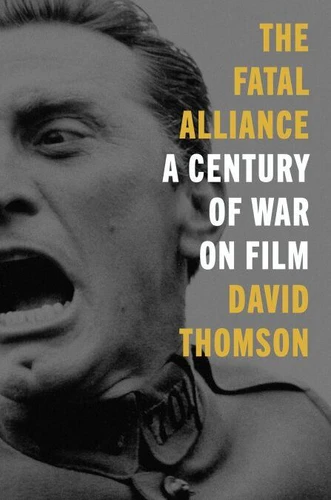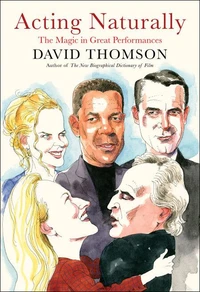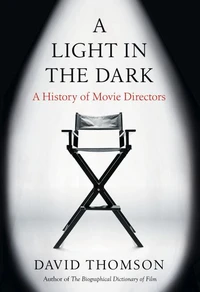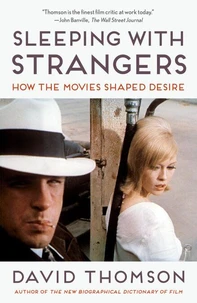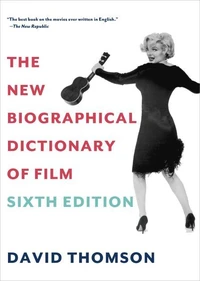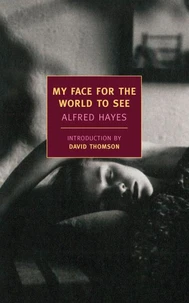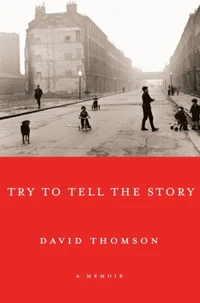The Fatal Alliance. A Century of War on Film
Par :Formats :
Disponible dans votre compte client Decitre ou Furet du Nord dès validation de votre commande. Le format ePub protégé est :
- Compatible avec une lecture sur My Vivlio (smartphone, tablette, ordinateur)
- Compatible avec une lecture sur liseuses Vivlio
- Pour les liseuses autres que Vivlio, vous devez utiliser le logiciel Adobe Digital Edition. Non compatible avec la lecture sur les liseuses Kindle, Remarkable et Sony
- Non compatible avec un achat hors France métropolitaine
 , qui est-ce ?
, qui est-ce ?Notre partenaire de plateforme de lecture numérique où vous retrouverez l'ensemble de vos ebooks gratuitement
Pour en savoir plus sur nos ebooks, consultez notre aide en ligne ici
- Nombre de pages416
- FormatePub
- ISBN978-0-06-304143-1
- EAN9780063041431
- Date de parution14/11/2023
- Protection num.Adobe DRM
- Infos supplémentairesepub
- ÉditeurHarper
Résumé
"A marvelous bombshell of a book, by one of our most formidably knowledgeable and insightful writers on film, it is filled with surprises and witty asides. Though Thomson is quick to pounce on the hypocrisies and historical omissions of some of these war movies, there is nothing compromised about his own daredevil judgments. We are in the hands of a master critic/essayist."-Phillip LopateFrom one of the greatest living writers on film, a magisterial look at a century of battle depicted on screen, and a meditation on the twisted relationship between war and the movies.
In The Fatal Alliance the acclaimed film critic David Thomson offers us one of his most provocative books yet-a rich, arresting, and troubling study of that most beloved genre: the war movie. It is not a standard history or survey of war films, although Thomson turns his typically piercing eye to many favorites-from All Quiet on the Western Front to The Bridge on the River Kwai to Saving Private Ryan. But The Fatal Alliance does much more, exploring how war and cinema in the twentieth century became inextricably linked.
Movies had only begun to exist by the beginning of World War I, yet in less than a century, had transformed civilian experience of war-and history itself-for millions around the globe. This reality is the moral conundrum at the heart of Thomson's book. War movies bring both prestige and are so often box office blockbusters; but is there something problematic at how much moviegoers enjoy depictions of violence on a grand scale, such as Apocalypse Now, Black Hawk Down, or even Star Wars? And what does this truth say about us, our culture, and our changing sense of warfare and the past?
In The Fatal Alliance the acclaimed film critic David Thomson offers us one of his most provocative books yet-a rich, arresting, and troubling study of that most beloved genre: the war movie. It is not a standard history or survey of war films, although Thomson turns his typically piercing eye to many favorites-from All Quiet on the Western Front to The Bridge on the River Kwai to Saving Private Ryan. But The Fatal Alliance does much more, exploring how war and cinema in the twentieth century became inextricably linked.
Movies had only begun to exist by the beginning of World War I, yet in less than a century, had transformed civilian experience of war-and history itself-for millions around the globe. This reality is the moral conundrum at the heart of Thomson's book. War movies bring both prestige and are so often box office blockbusters; but is there something problematic at how much moviegoers enjoy depictions of violence on a grand scale, such as Apocalypse Now, Black Hawk Down, or even Star Wars? And what does this truth say about us, our culture, and our changing sense of warfare and the past?
"A marvelous bombshell of a book, by one of our most formidably knowledgeable and insightful writers on film, it is filled with surprises and witty asides. Though Thomson is quick to pounce on the hypocrisies and historical omissions of some of these war movies, there is nothing compromised about his own daredevil judgments. We are in the hands of a master critic/essayist."-Phillip LopateFrom one of the greatest living writers on film, a magisterial look at a century of battle depicted on screen, and a meditation on the twisted relationship between war and the movies.
In The Fatal Alliance the acclaimed film critic David Thomson offers us one of his most provocative books yet-a rich, arresting, and troubling study of that most beloved genre: the war movie. It is not a standard history or survey of war films, although Thomson turns his typically piercing eye to many favorites-from All Quiet on the Western Front to The Bridge on the River Kwai to Saving Private Ryan. But The Fatal Alliance does much more, exploring how war and cinema in the twentieth century became inextricably linked.
Movies had only begun to exist by the beginning of World War I, yet in less than a century, had transformed civilian experience of war-and history itself-for millions around the globe. This reality is the moral conundrum at the heart of Thomson's book. War movies bring both prestige and are so often box office blockbusters; but is there something problematic at how much moviegoers enjoy depictions of violence on a grand scale, such as Apocalypse Now, Black Hawk Down, or even Star Wars? And what does this truth say about us, our culture, and our changing sense of warfare and the past?
In The Fatal Alliance the acclaimed film critic David Thomson offers us one of his most provocative books yet-a rich, arresting, and troubling study of that most beloved genre: the war movie. It is not a standard history or survey of war films, although Thomson turns his typically piercing eye to many favorites-from All Quiet on the Western Front to The Bridge on the River Kwai to Saving Private Ryan. But The Fatal Alliance does much more, exploring how war and cinema in the twentieth century became inextricably linked.
Movies had only begun to exist by the beginning of World War I, yet in less than a century, had transformed civilian experience of war-and history itself-for millions around the globe. This reality is the moral conundrum at the heart of Thomson's book. War movies bring both prestige and are so often box office blockbusters; but is there something problematic at how much moviegoers enjoy depictions of violence on a grand scale, such as Apocalypse Now, Black Hawk Down, or even Star Wars? And what does this truth say about us, our culture, and our changing sense of warfare and the past?

